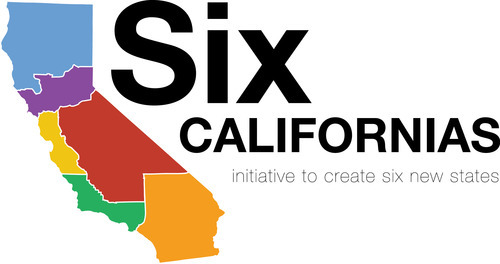
By Ivan Baric
What seemed impossible not so long ago might just come true now that Tim Draper, a dot com billionaire who lives in California, has decided to make a move and start fighting in order to split California up to six different states. Since California is the most populous and richest state in the US, it was only a matter of time before a member of the state’s wealthy elite decided that he had had enough with doing business in a massive state with an inefficient, bloated, government. What pushed Tim Draper to finally start pulling strings in order to achieve a no-tax – or perhaps low-tax – haven, is the fact that he has to pay taxes in California for services that do not directly impact him. In short, he’s tired of paying taxes to cover poor kids in Los Angeles, even though he is not connected to the city at all.
“Vast parts of our state are poorly served by a representative government dominated by a large number of elected representatives from a small part of our state, both geographically and economically,” says his plan, stating that the aim is to create “six smaller state governments, while preserving the historical boundaries of the various counties, cities and towns.“
Even though this plans seems fairly one-sided in favor of the rich, Draper disagrees and argues that “If [the poorer parts of California] each had their own state, I believe all of those states would become wealthier. And I believe by managing their own state, they will become much more successful.“
But, the critics aren’t buying it, and say that the ‘Six Californias’ campaign is nothing more than a scheme for making sure that the taxes of wealthy individuals like Draper gets ‘redistributed’ inside their own affluent neighborhoods.
Interestingly enough, the initiative comes from a billionaire who had invested in services like Skype and Hotmail, at the time some of the biggest tech companies in the US, which continue to hide their cash overseas, avoiding the tax man altogether. Draper’s initiative will require at least 807,615 petition signers, or 8 percent of the total votes cast in the 2010 gubernatorial elections, by July 18 to make it on to the November ballot. Only time will tell whether or not this initiative will achieve its goals, but the majority of people in California have every right to be worried, because it seems that it won’t do much good for them in the long run.
